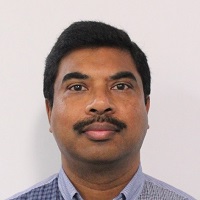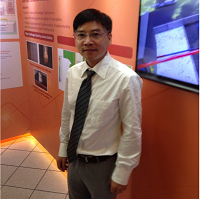ICEMAT 2024 Plenary Speakers
Prof. Firoz Alam
RMIT University, Australia
Dr Firoz Alam is a Professor in the School of Engineering (Aerospace, Mechanical and Manufacturing) at RMIT University in Melbourne, Australia. He completed his PhD in vehicle aerodynamics from the same university in 2000. He received his Master’s degree (combined with Bachelors) in Aeronautical Engineering with Honours (First Class First) from Riga Civil Aviation Engineers Institute, former Soviet Republic of Latvia in 1991. Prof Alam’s research interest includes aerodynamics and hydrodynamics (aircraft, road vehicles, trains, buildings and structures), energy, engineering education (curriculum design, quality assurance and accreditation). He has over 250 publications (including scholarly books, book chapters, journal articles and peer reviewed conference papers). He is currently serving as editor in chief and editorial board member for over half a dozen international scientific journals. Prof Alam is a Fellow of the Institution of Engineers Australia, Chartered Professional Engineer (CPEng), and APEC Engineer. He is an active member of several other professional societies and associations including American Society of Mechanical Engineers (ASME), American Institute of Aeronautics and Astronautics (AIAA), Society of Automotive Engineers USA & Australia, and International Society of Bionic Engineering. Prof Alam is the recipient of RMIT University’s best Teacher Award in 2004.
Speech: High Performance Textile Aerodynamics in Elite Sports
Abstract: The application of science and technology can improve sports performance. Particularly in high-speed sports like ski jumping, cycling, skiing, bobsledding, sprinting, speed skating, and swimming, aerodynamics is seen as a decisive element in winning margins and elite sporting competitions. Wearing sports apparel has advantages over traditional clothing for athletes. As a result, aerodynamic performance in sportswear is increasingly being considered while designing sportswear. Evaluating the aerodynamic performance of sports textiles is essential to producing aerodynamically successful sports gear for faster-paced activities. The main goal of this article is to highlight some aero/hydrodynamic research done at RMIT University on high-performance textiles used in speed sports and the ramifications of the research findings for competitive sports and other domains.
Assoc. Prof. Wenming Yang
National University of Singapore, Singapore
After obtaining his Ph.D degree in 2000, Wenming Yang has been employed as a research fellow in the Department of Mechanical Engineering, National University of Singapore, followed by a teaching instructor and assistant professor in 2006 and 2011, respectively. Since 2017, He has been employed as an associate professor in National University of Singapore. His research interests include: Internal combustion engine fueled by biofuels and blend fuels, development of advanced platform for boilers with high efficiency and low emissions, incinerators and micro power generators etc. He is now looking for Ph.D. candidates with interests in IC engines, waste to energy (WTE) incineration power plant, biomass boilers and CFB boilers.
Speech: Investigation on the Major Factors Affecting the Performance of Biomass Boiler
Abstract: With the increased concern on greenhouse gas emissions and global warming, various alternative fuels are attracting the attentions of worldwide researchers to replace the fossil fuel. Of which biomass is one of the most promising candidates due to its intrinsic properties: renewable, carbon neutral, vast available. In this work, by combining numerical modelling and experimental test, the impact of various factors such as ash content, moisture level, excess air coefficients, addition of methane and oxygen enrichment etc on the combustion process and emissions formation will be presented, and the optimal operating conditions with high efficiency and low emission will be disclosed.

